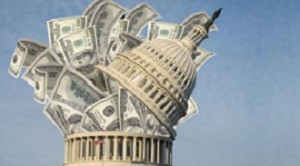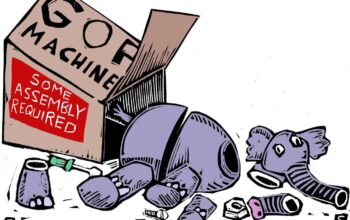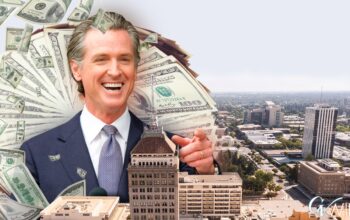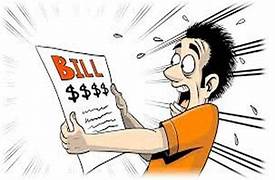Democrats love taxes. Last year without many knowing about it they changed the tax credits for businesses. That will cost Californians $9 billion a year. That is money taken to create jobs, given to government to buy votes and help special interest.
“Assembly Bill 65 by Assemblyman Evan Low would create a California Universal Basic Income. It is like AB2712 presented last legislative session, which proposed to raise the necessary money either through a value-added tax, raising corporate taxes or implementing a tax on services.
Assembly Bill 71 by Assembly members Luz Rivas and David Chiu creates a $2.4 billion homeless fund. The devil’s in the details, however, and the bill suggests the money could come from increases in income tax rates on individuals making over $1 million, increasing corporate income taxes, and collecting taxes on increases in the value of assets through “marking to market unrealized capital gains and the repeal of stepped-up in basis of inherited assets.”
Finally, Assembly Constitutional Amendment No. 1 is back again this year. ACA1, by Assemblywoman Cecilia Aguiar-Curry, would repeal the two-thirds vote threshold needed to pass local sales and parcel taxes for infrastructure and affordable housing projects. This direct attack on Prop. 13 is the camel’s nose under the tent and part of a long term strategy to strip away all the two-thirds protections on tax increases.
Have you made your reservation with U-Haul? Closing schools and churches have starved our souls and minds. Higher taxes will just starve us.
Tax hikes are back on the agenda in Sacramento

By Jon Coupal | and Scott Kaufman, Daily Breeze, 1/10/21
With 1 million signatures in and several potential challengers, the recall drive against Gov. Gavin Newsom may be causing him to reconsider some of his more progressive policy positions. In his recently unveiled $4.5-billion stimulus program, he offered — get this — tax relief, not tax hikes.
The so-called “Equitable Recovery for California Businesses and Jobs” plan includes $575 million for small business grants, $777.5 million in tax credits to businesses that hire or retain employees, some sales-tax exemptions and $600 checks to low-income Californians.
Of course, it also contains the usual slop like $1.5 billion in subsidies to buy electric vehicles but, nonetheless, we take victories where we can get them in Taxifornia.
Newsom’s September pledge to oppose new taxes was fairly explicit: “In a global, mobile economy, now is not the time for the kind of state tax increases on income we saw proposed at the end of this legislative session and I will not sign such proposals into law.” The irony is not lost on us that the governor said this while also endorsing Prop. 15, the failed $12 billion tax hike — and latest attempt at gutting Proposition 13 — on the November ballot. But his remarks did provide a bit of assurance to the state’s job creators.
On the other hand, there is no such hesitancy to push tax increases in the California Legislature. Proposing a “tax increase du jour” is in the DNA of Democratic legislators. Here are just a few of the bills causing anxiety among those Californians who want to keep at least some of the money they earn.
Assembly Bill 65 by Assemblyman Evan Low would create a California Universal Basic Income. It is like AB2712 presented last legislative session, which proposed to raise the necessary money either through a value-added tax, raising corporate taxes or implementing a tax on services.
Assembly Bill 71 by Assembly members Luz Rivas and David Chiu creates a $2.4 billion homeless fund. The devil’s in the details, however, and the bill suggests the money could come from increases in income tax rates on individuals making over $1 million, increasing corporate income taxes, and collecting taxes on increases in the value of assets through “marking to market unrealized capital gains and the repeal of stepped-up in basis of inherited assets.”
Finally, Assembly Constitutional Amendment No. 1 is back again this year. ACA1, by Assemblywoman Cecilia Aguiar-Curry, would repeal the two-thirds vote threshold needed to pass local sales and parcel taxes for infrastructure and affordable housing projects. This direct attack on Prop. 13 is the camel’s nose under the tent and part of a long term strategy to strip away all the two-thirds protections on tax increases.
Ronald Reagan once quipped that the “government’s view of the economy could be summed up in a few short phrases: If it moves, tax it. If it keeps moving, regulate it. And if it stops moving, subsidize it.” California businesses have stopped moving, well except for moving out-of-state.
Newsom at least seems to realize this. But is it too little too late? While the state is projecting a $15.5 billion surplus come July, Californians are struggling, employers are moving away, and small businesses are closing.
Undercutting Newsom’s newfound restraint, the Legislature seems to be falling back to their usual solution to problems — more taxes. This constant call for more taxes inflicts damage even if the proposals are never enacted. Newsom can promise all he wants, but taxpayers and the business community won’t ignore the message they are receiving loud and clear from the Capitol.
And so the exodus continues.
Jon Coupal is the president and Scott Kaufman is the legislative director of the Howard Jarvis Taxpayers Association.




